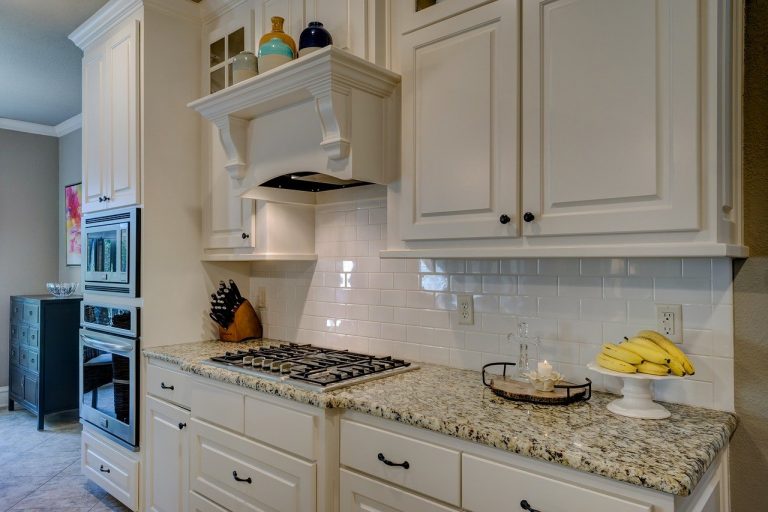How to Clean Epoxy Countertops: Tips and Tricks
There are some affiliate links below, but they are all products I highly recommend. For more info, view my disclosure here.
Cleaning epoxy countertops is an essential task to maintain their shine and durability. Epoxy countertops are a popular choice for kitchens, bathrooms, and other high-traffic areas because of their resistance to stains, scratches, and heat.
However, without proper maintenance, they can lose their luster and become dull over time. Here’s how to clean epoxy countertops effectively and keep them looking new for years to come.
To start, it’s important to understand the nature of epoxy resin. Epoxy resin is a type of plastic that hardens when mixed with a hardener. It creates a non-porous epoxy resin surface that is resistant to water, chemicals, and stains. However, it can also be sensitive to certain cleaners and abrasive materials, which can damage the surface.
Therefore, it’s crucial to use the right cleaning products and techniques to avoid any damage to your epoxy countertops. In the following sections, we will guide you through the steps to clean epoxy countertops safely and efficiently.
Understanding Epoxy Countertops
Epoxy countertops are a popular choice for both residential and commercial spaces due to their durability and resistance to heat, moisture, and chemicals. In this section, we will explore the composition and properties of epoxy surfaces as well as the benefits of using them in your space.
Composition and Properties
Epoxy surfaces are made by mixing two components: a resin and a hardener. When these two components are mixed together, a chemical reaction occurs, resulting in a hard, glossy surface. Epoxy surfaces are known for their durability and resistance to scratches, stains, and impact.
In addition to being a durable surface, epoxy countertops are also heat resistant, making them an ideal choice for kitchens and other areas where high temperatures are common. They are also resistant to UV radiation, which means they will not fade or yellow over time.
Benefits of Epoxy Surfaces
Epoxy surfaces offer a number of benefits over other types of surfaces. Here are just a few:
- Durability: Epoxy surfaces are extremely durable and can withstand heavy use without showing signs of wear and tear.
- Easy to Clean: Epoxy surfaces are easy to clean and maintain. They can be wiped down with a damp cloth or mild soap and water.
- Versatility: Epoxy surfaces can be customized to fit any design aesthetic. They come in a variety of colors and finishes, and can even be made to look like other materials such as marble or granite.
- Cost Effective: Epoxy surfaces are often more cost effective than other types of surfaces such as granite or quartz.
Epoxy countertops are a great choice for anyone looking for a durable, easy to clean surface that can withstand high temperatures and heavy use. With their versatility and cost effectiveness, they are a great choice for any space.
Preparation for Cleaning
Before you start cleaning your epoxy countertop, you need to prepare the area to ensure you get the best results. This section will cover the two main steps of preparation: gathering materials and conducting an initial surface assessment.
Gathering Materials
To clean your epoxy countertop, you will need the following materials:
- Clean rag
- Spray bottle
- Mild dish soap
Make sure you have all the materials ready before you start cleaning. This will save you time and ensure that you have everything you need to clean the countertop thoroughly.
Initial Surface Assessment
Before you start cleaning, you should conduct an initial surface assessment. This will help you identify any areas that require extra attention.
Take a close look at the countertop and identify any stains, spills, or areas of discoloration. You should also check for any scratches or chips in the surface.
Once you have identified any problem areas, you can focus your cleaning efforts on these areas to ensure that they are properly cleaned.
By gathering the necessary materials and conducting an initial surface assessment, you will be well-prepared to start cleaning your epoxy countertop.
Cleaning Techniques
When it comes to cleaning epoxy countertops, it’s important to use the right techniques to avoid damaging the surface. In this section, we’ll discuss the three main types of cleaning techniques: daily cleaning routine, dealing with spills and stains, and removing tough residues.
Daily Cleaning Routine
To keep your epoxy countertop looking its best, it’s important to establish a daily cleaning routine. Start by wiping down the surface with a soft cloth dampened with warm water. Use a circular motion to remove any dirt or debris. For tough stains, you can use a mild soap solution. Avoid using abrasive cleaners or cleaning products that contain bleach, ammonia, or other harsh chemicals.
Dealing with Spills and Stains
Spills and stains are inevitable, but they don’t have to leave a lasting mark on your epoxy countertop. The key is to act quickly. For liquid spills, use a damp cloth to soak up any excess liquid. Then, wipe the area with a soft cloth dampened with warm water. For tougher stains, you can use a glass cleaner or a mild soap solution. Be sure to rinse the area thoroughly with warm water and dry it with a soft cloth.
Removing Tough Residues
Over time, your epoxy countertop may develop tough residues that are difficult to remove. To tackle these stubborn stains, you can use isopropyl alcohol or an abrasive cleaner. However, it’s important to use these products sparingly and with caution. Apply the cleaner to a soft cloth and use a circular motion to work it into the stain. Rinse the area thoroughly with warm water and dry it with a soft cloth.
By following these cleaning techniques, you can keep your epoxy countertop looking its best for years to come. Remember to always use gentle, non-abrasive cleaning methods and avoid harsh chemicals that can damage the surface.
Maintaining Epoxy Resin Countertops
Epoxy countertops are durable and long-lasting, but they still require proper care and regular cleaning to maintain their appearance and functionality. Here are some tips on how to maintain your epoxy countertops.
Regular Maintenance Practices
To keep your epoxy countertops looking their best, it’s important to follow some regular maintenance practices. Here are some things you can do to keep your countertops in top condition:
- Clean up spills immediately: Epoxy countertops are resistant to stains, but they can still be damaged by acids and other harsh chemicals. If you spill something on your countertop, be sure to clean it up right away with a soft cloth and mild soap and water.
- Use a cutting board: While epoxy countertops are scratch-resistant, they can still be damaged by sharp knives and other cutting tools. To avoid scratches and other damage, always use a cutting board when preparing food.
- Avoid placing hot objects directly on the countertop: Epoxy countertops are heat-resistant, but they can still be damaged by hot objects. To avoid damage, always use a trivet or other protective surface when placing hot objects on your countertop.
- Use a soft cloth for cleaning: To avoid damaging your epoxy countertop, always use a soft cloth or sponge when cleaning. Avoid using abrasive pads or scrubbers, as these can scratch the surface of your countertop.
Avoiding Damage
Even with regular maintenance, your epoxy countertop can still be damaged if you’re not careful. Here are some things to avoid to keep your countertop in good condition:
- Don’t use harsh chemicals: While epoxy countertops are resistant to many chemicals, they can still be damaged by harsh chemicals like bleach and ammonia. To avoid damage, always use mild soap and water for cleaning.
- Don’t cut directly on the countertop: As mentioned earlier, epoxy countertops are scratch-resistant, but they can still be damaged by sharp knives and other cutting tools. Always use a cutting board to avoid scratches and other damage.
- Don’t place heavy objects on the countertop: While epoxy countertops are strong and durable, they can still be damaged by heavy objects. To avoid damage, always use caution when placing heavy objects on your countertop.
By following these tips, you can keep your epoxy countertops looking their best for years to come. With proper care and regular cleaning, your countertops will continue to be a beautiful and functional part of your home.
Advanced Tips and Tricks
If you want to take your epoxy countertop cleaning to the next level, here are some advanced tips and tricks that can help you enhance the shine and epoxy finish, as well as repair minor damages.
Enhancing Shine and Finish
If you want your epoxy countertop to have a glossy finish, there are a few things you can do. First, make sure the surface is clean and dry. Then, apply a thin layer of epoxy using a clean, dry cloth. Spread the epoxy evenly over the surface, making sure to cover all areas. Once the epoxy has dried, use a soft cloth to buff the surface, which will help to enhance the shine and finish.
Another way to enhance the shine and finish of your epoxy countertop is to apply a small amount of mineral oil to the surface. Simply apply a small amount of mineral oil to a clean, dry cloth and rub it into the surface of the countertop. This will help to bring out the natural shine and color of the epoxy.

Repairing Minor Damages
If your epoxy countertop has minor damages, such as scratches or small cracks, there are a few things you can do to repair them. First, clean the damaged area with a liquid cleaner and let it dry completely. Then, use a fine-grit sandpaper to sand down the damaged area until it is smooth. Wipe away any dust or debris with a clean, dry cloth.
Next, apply a small amount of epoxy to the damaged area, making sure to spread it evenly over the surface. Use a putty knife or spatula to smooth out the epoxy and remove any excess. Let the epoxy dry completely before using the countertop again.
By following these advanced tips and tricks, you can keep your epoxy countertop looking its best for years to come. Remember to always use gentle cleaning methods and avoid harsh chemicals, as they can damage the surface of the epoxy.







